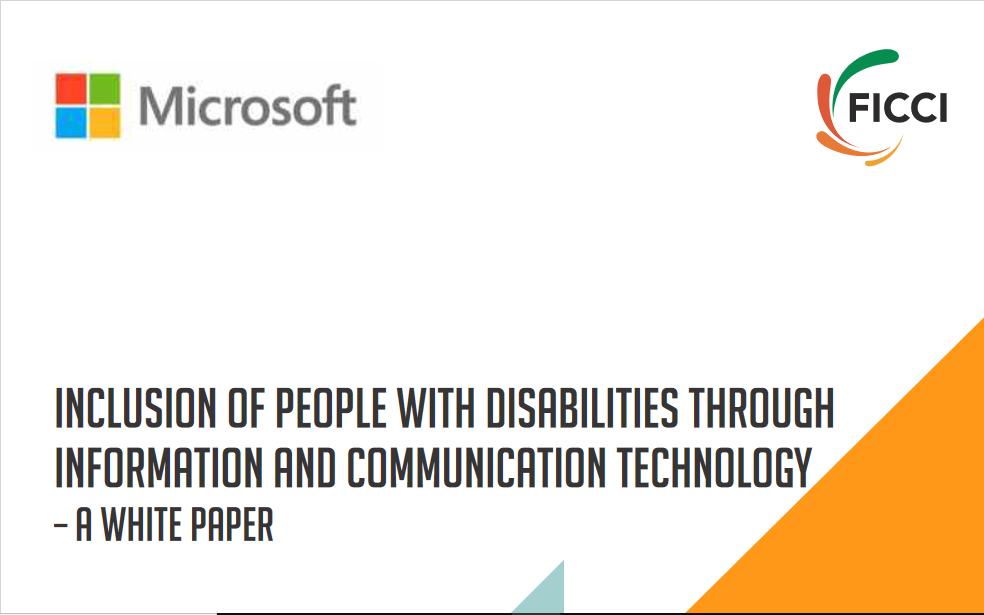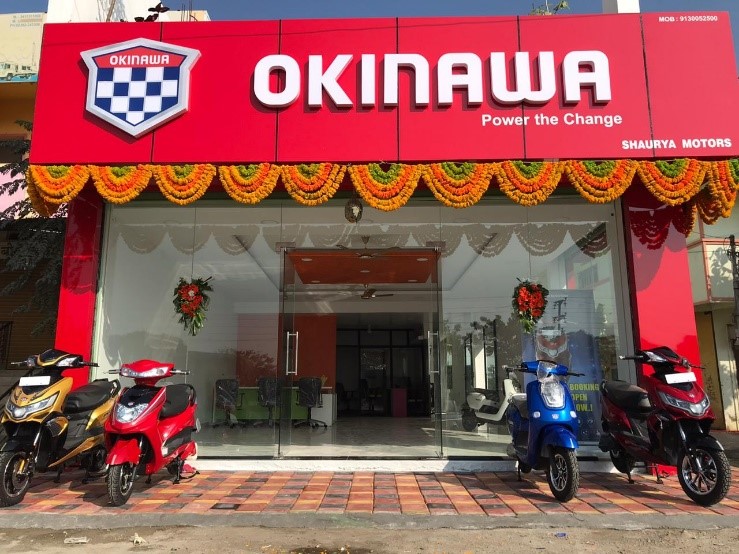Bengaluru, NFAPost: Microsoft in collaboration with FICCI has released a whitepaper, ‘Inclusion of Persons with Disabilities through Information and Communication Technology (ICT)’, with knowledge support from DEOC, a social enterprise.
Unveiled at a virtual conference with members of the government and industry, the whitepaper underscores the potential of technology in accelerating inclusive growth for India, with a focus on enhancing accessibility for persons with disabilities (PwD).
The paper outlines the role of technologies like artificial intelligence and its role in creating societies and economies that allow full and equal participation of all citizens. Especially in a post pandemic world, technology has served as a great enabler and equalizer for persons with disabilities, creating greater possibility of an inclusive workforce.
Some of the key recommendations of the whitepaper include standards for public procurement for persons with disabilities, setting up an accessibility commission board, accessibility of product and services, online education and digital literacy.
It underscores the need for representation of PwDs in the workforce and consolidated efforts towards data collection for PwDs. In its recommendations, the paper also outlines the need for creating an ecosystem for assistive technology, a universal design institute and the formation of a sub-group on accessibility of ICT by the FICCI Task Force on D&I.
Launching the whitepaper, Anna Roy, Senior Advisor, NITI Aayog said, “The narrative should not be about technology, but about how technology could help us in achieving our goal of inclusivity”. She further added, “Inclusivity is so important, and it is the PM’s key agenda too. In the area of frontier technologies, AI is important. This report is a timely initiative.”
Keshav Suri, Co-Chair, FICCI Task Force on D&I and Executive Director, Lalit Hotels and Founder, Keshav Suri Foundation, said, “COVID has taught us to come together to be able to communicate with each other through ICT.” He further added, “Information and Communication Technology can act as a great enabler to open the road of opportunities for persons with disabilities across sectors – education, health, social, commercial, government sectors and more. Without access to ICT, people with disabilities are not able to get equal access to potential opportunities in these areas.”
Committed to supporting this journey, Keshav Dhakad, Group Head and General Counsel, Microsoft India, said, “Today, accessibility is not just a responsibility, but also an opportunity. When a culture of disability inclusion that powers accessibility, is coupled with technology, it leads to break-through innovations. Investing in AI and other emerging technologies can improve the way persons with disabilities interact with and leverage technology in their daily lives – how they access education, new skills or employment opportunities. We see this at Microsoft every day, where accessibility is built in by-design into our products, helping persons with disabilities unlock their full potential at work, school, and in daily life. If embraced as a movement that draws on the collective capabilities of organizations, governments, civil society and experts, the potential for India’s development is tremendous.”
Rama Chari, Founder and Director, DEOC and Member, FICCI Task Force on D&I, presented key insights from the whitepaper on inclusion of persons with disabilities through ICT. She said, “Technology has revolutionized the world – online meetings/online medical advice etc. But it could be a barrier if not accessible. It is not just software but also hardware like coffee vending machines which are not accessible. AI apps that are being developed must take into account the needs of PwDs.”
Ira Singhal, Joint Director, Department of Women and Child Development, Government of NCT of Delhi, gave a special address at the launch of the whitepaper, citing, “In India, disability is also a consequence of family income and it’s not yet about genetic disability. For example, disability due to lack of nutrition, lack of rehabilitation etc. The connect between the inventor of accessible tech and the beneficiary is missing.”
Following the launch, was a panel discussion on the role of ICT in empowering persons with disabilities. The panellists were Nipun Malhotra, Founder, Nipman Foundation and Chair, Working Group on PWD, FICCI Task Force on D&I; Apoorv Kulkarni, Associate Director, Ola Mobility Institute and Member, FICCI Task Force on D&I; Nupur Srivastava, HR Director and D&I Leader, Intel India; Tom Clancy, Prosus and Anuj Jain, Executive Director, National Association of the Deaf.





